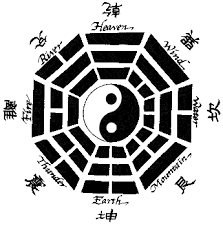I-CHING

I-Ching is chinese form of Divination system. It is the worlds oldest Oracle, more than 5000 years old. The I-ching is part of a numerological system, with even numbers as Yin, and odd numbers as Yang. In the hexagrams, Yin is represented by a broken line, Yang is represented by a whole line. To use the i-ching coins for divination, one side is designated as Yin, the other as Yang. Tossing the coins, and recording the results, forms the hexagram from the bottom line up. Once you have formed your hexagram, then it is time to turn to the Book of Changes for the meaning of that hexagram. There are sixty-four possibilities. How you approach your question is key- avoid "yes/no" or concrete questions, because the Book of Changes provides metaphors that are rich with imagery, and asking what the consequences of certain actions is more appropriate. So, instead of asking "Should I move to a new home?", ask "What will be the effects of moving to a new home?" or "What will be the ramifications if I stay where I am?" The I-Ching is a book of wisdom, and it must be approached with a desire for wisdom, rather than a desire for cut and dried answers telling you what to do. The ultimate decision is always in your hands, and the I-Ching is a venerable and wise advisor in the balance of the forces at play.
In Vedic Astrology, an astrological chart or horoscope of a person is built up, which consists of 12 houses and each house represent various aspects of life such as Personality, Health, Wealth, Profession, Diseases, Romance, Family, Travel, Gains/Losses, Parents, Siblings, Children, Education, Enemies, Luck, Spirituality, Religion, Hospitalization, Expenditure, etc. The placement of 9 planets in 12 houses, at the time of birth and its transit during the lifetime of a person, is the basis for prediction and analysis of a horoscope
